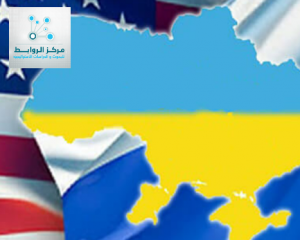BY: Shatha kalel
The recent U.S. presidential election, with Donald Trump returning to power, has sparked widespread speculation about its implications for global politics, the war in Ukraine, and the economy. Russian political analyst Tatyana Stanovaya argues that while the Kremlin appears to be in a favorable position, the reality is far more nuanced. The intersection of Western political shifts, military strategies, and economic considerations has created a challenging environment for both Russia and the West.
Putin’s Apparent Advantage
From the Kremlin’s perspective, Trump’s election might seem like a windfall. Western support for Ukraine is waning, NATO unity is being tested, and high-level U.S.-Russia talks appear more plausible. On the battlefield, Russia has maintained pressure on Ukraine, targeting infrastructure and pushing westward, albeit at significant human and material costs.
However, this surface-level advantage is deceptive. The core issues—Ukraine’s NATO aspirations and Russia’s territorial demands—remain unresolved. No Western leader, including Trump, has proposed a plan for peace that aligns with Russia’s terms. Even Trump’s previous admiration for Vladimir Putin and his critiques of U.S. military aid do not guarantee a shift in policy that Moscow desires.
Challenges for Ukraine Amid Political Shifts
After nearly three years of conflict, Ukrainians have become acutely aware of the limitations of U.S. support and are adapting to changing political dynamics. While the Biden administration provided substantial military aid, it has not decisively altered the war’s trajectory. Ukrainians view Trump’s potential return to power with skepticism. His ambiguous claims of ending the war quickly, dissatisfaction with U.S. aid, and admiration for Putin raise concerns about reduced support or a peace deal favoring Moscow.
Despite these uncertainties, Ukraine is preparing for various scenarios. President Zelensky is pursuing pragmatic strategies, including bolstering domestic arms production and strengthening alliances with nations like Canada, Japan, and European partners. Kyiv’s “peace formula,” a multilateral initiative addressing post-war issues such as food security, infrastructure restoration, and nuclear safety, has gained support from nearly 90 countries.
Ukraine has also mastered navigating U.S. bipartisan politics. Drawing lessons from Trump’s first term and impeachment trial, Kyiv ensures strong communication with both Democrats and Republicans to maintain military aid. This adaptability underscores Ukraine’s resilience and determination to achieve a position of strength.
Economic and Political Challenges for Moscow
Russia’s economy, already strained by sanctions and the prolonged conflict, faces additional risks if military escalation continues. Mobilization would require significant resources, both financial and political, potentially destabilizing the domestic front. Despite efforts to diversify alliances and economic ties, Russia remains heavily dependent on oil and gas revenues, which have been affected by sanctions and shifting global energy markets.
Moscow’s attempts to destabilize Ukraine politically or militarily have yielded little progress. The government in Kyiv, under Zelensky, remains resilient, with no indication of a pro-Russian leadership emerging. The Kremlin’s hopes for Western political change translating into concessions from Ukraine are similarly unlikely to materialize.
Trump’s Role and the West’s Position
While Trump’s victory introduces uncertainty, it offers no clear advantage to Russia. Western leaders, regardless of political orientation, remain unwilling to pressure Ukraine into unacceptable concessions. Even Trump’s rhetoric suggests hesitation about fully withdrawing support for Ukraine or endorsing a Kremlin-friendly solution.
The Kremlin’s strategy for a final offensive hinges on achieving a breakthrough that would force Ukraine to surrender or negotiate on Russian terms. However, this risky approach could backfire, necessitating further mobilization, escalating costs, and even risking direct confrontation with NATO forces.
Future Implications
For Russia, Trump’s return to power represents more uncertainty than opportunity. Missteps could exacerbate economic challenges, deepen isolation, and force more radical measures at home. For Ukraine, the shift in U.S. leadership emphasizes the importance of resilience, strategic planning, and diversified alliances to ensure long-term survival and sovereignty.
On the global stage, Trump’s foreign policy could influence energy markets, trade dynamics, and investment flows. A reduced U.S. focus on Ukraine might embolden Moscow in the short term but risks destabilizing Eastern Europe, with broader economic and geopolitical repercussions.
Conclusion
While Trump’s victory creates a new dynamic in the conflict, it underscores the complexities of Russia’s position. The Kremlin’s strategy for success depends on factors beyond its control, including Western unity, Ukrainian resilience, and Trump’s policy decisions. Similarly, Ukraine’s pragmatic approach to securing bipartisan support and diversifying its partnerships positions it to weather the challenges ahead.
The coming months will reveal whether Moscow can capitalize on this political shift or if it will find itself further entangled in a conflict that continues to strain its economy and diminish its global standing. Meanwhile, Ukraine remains determined to navigate these challenges and pursue a resolution from a position of strength.
Economic Unit/North America Office
Al Rawabet Center for Research and Strategic Studies

